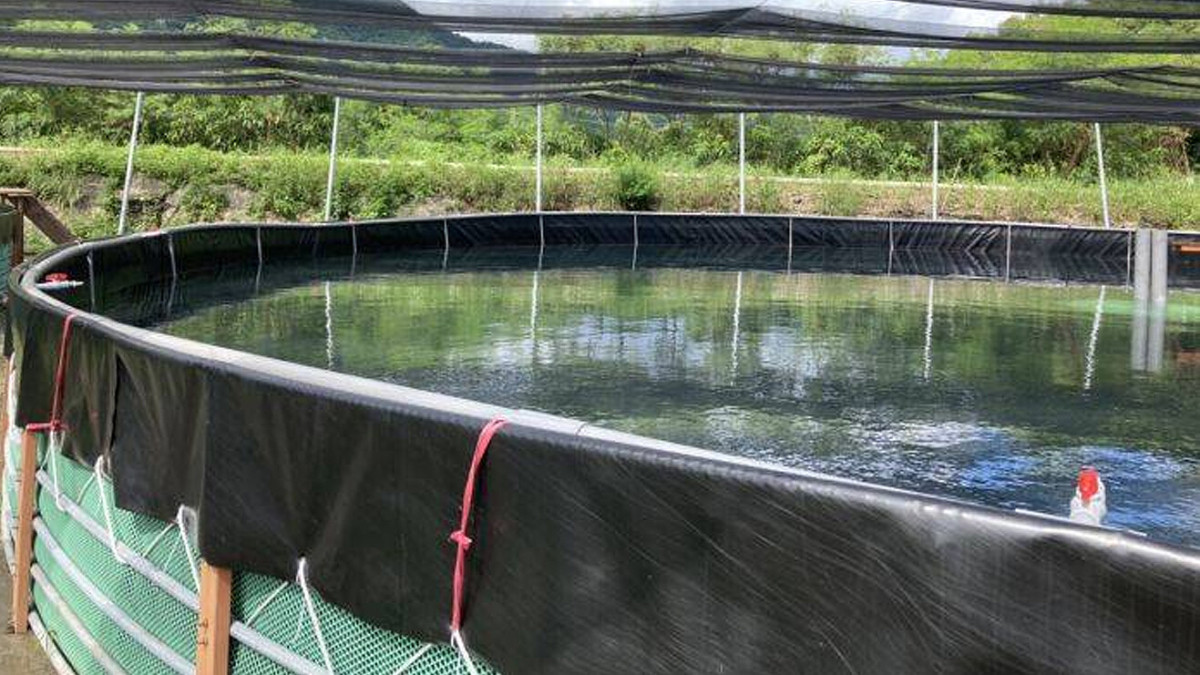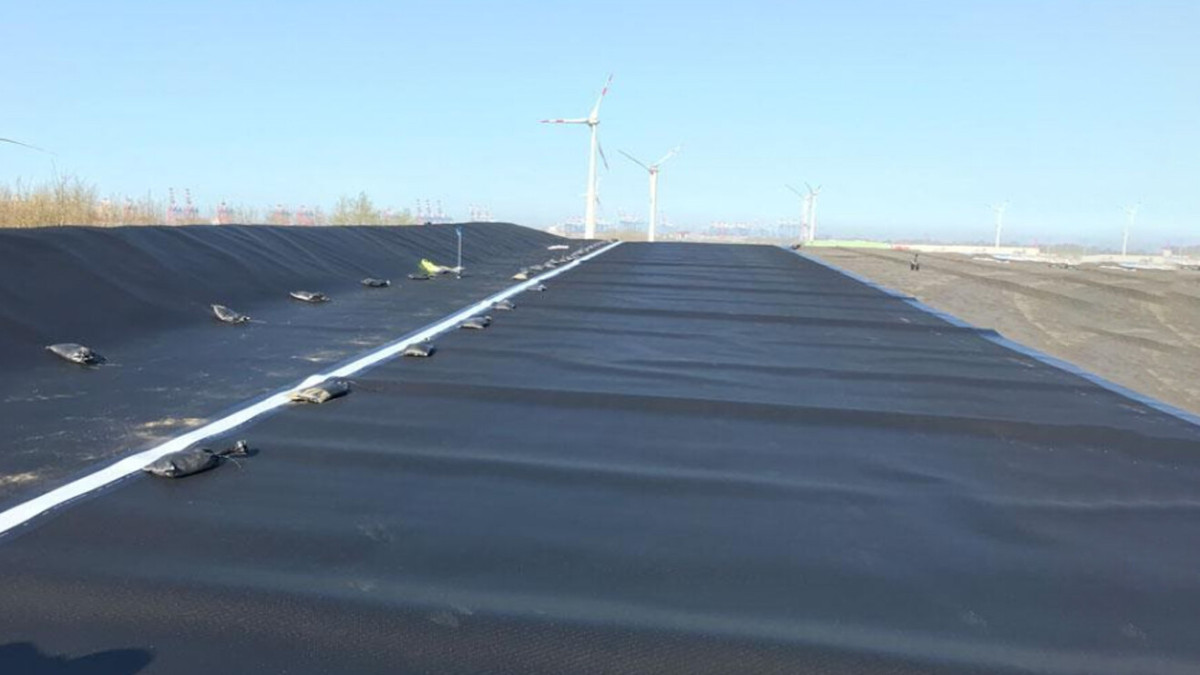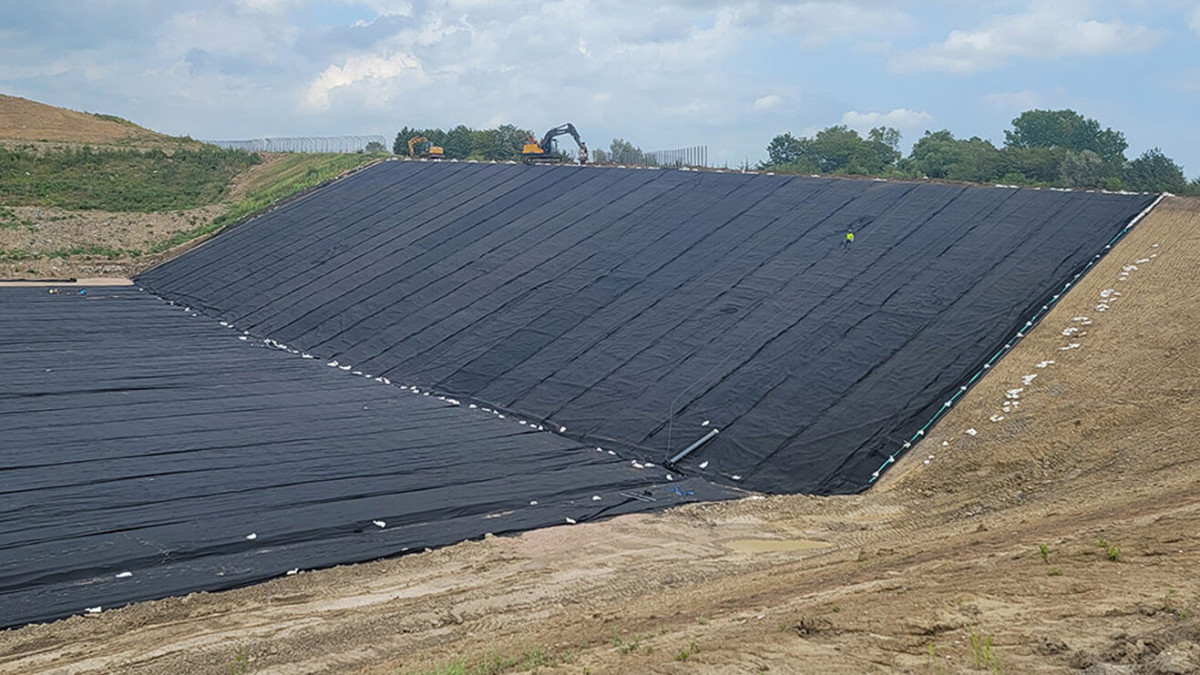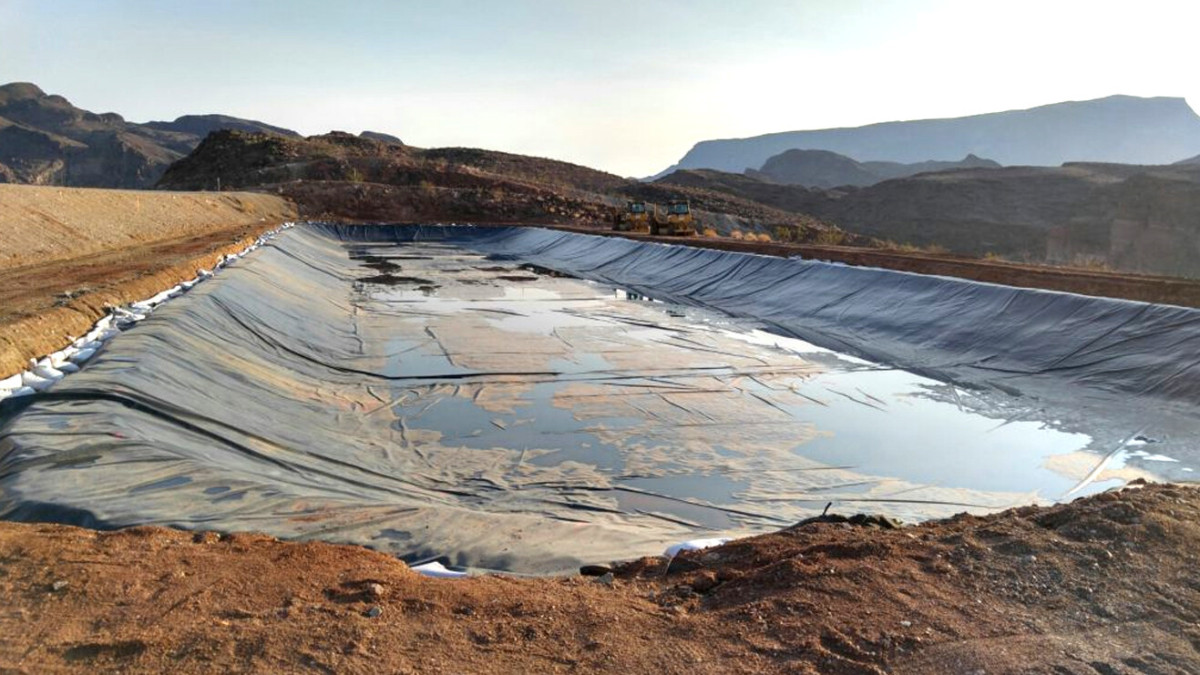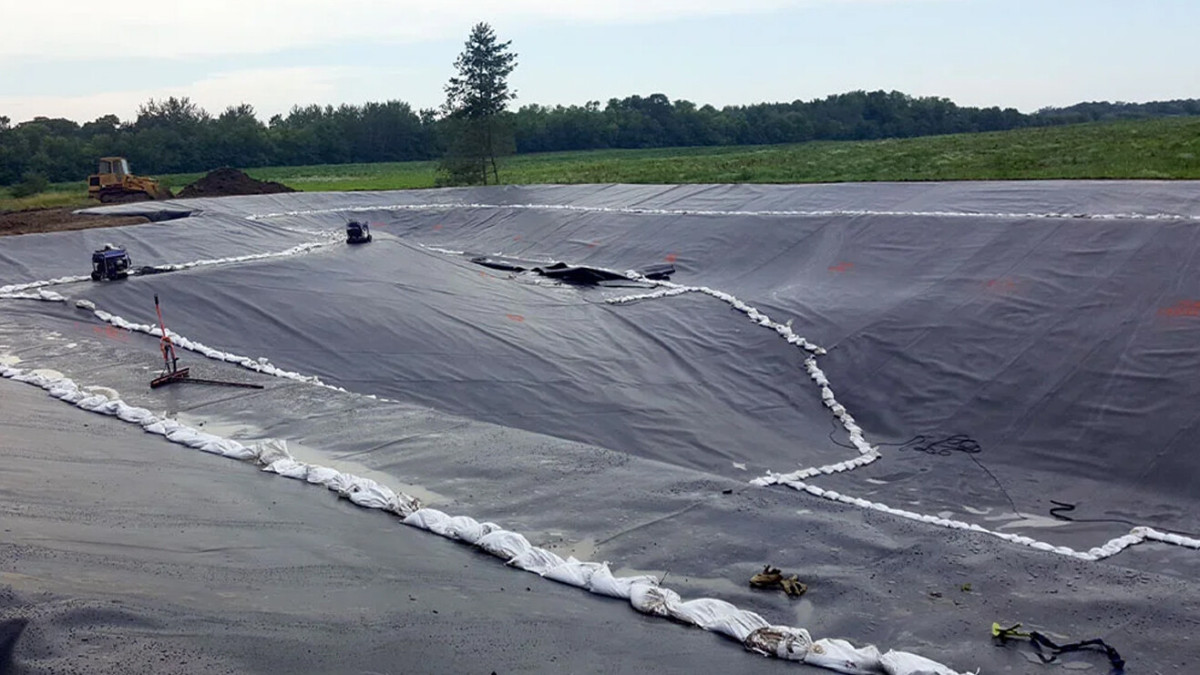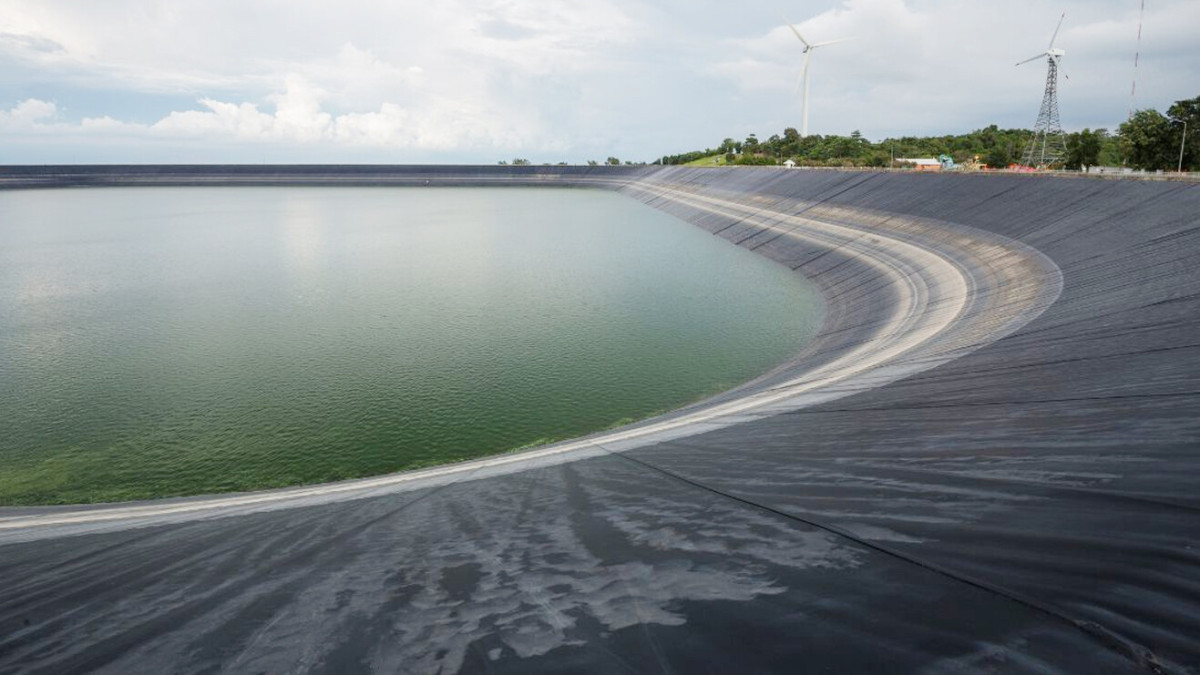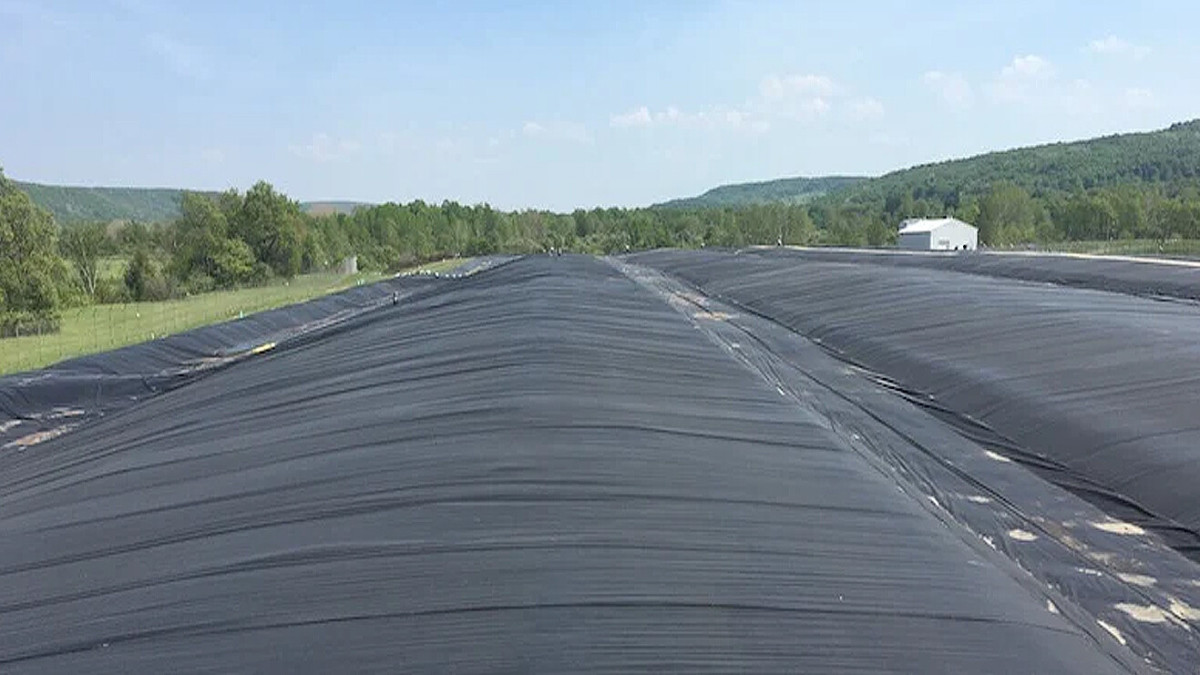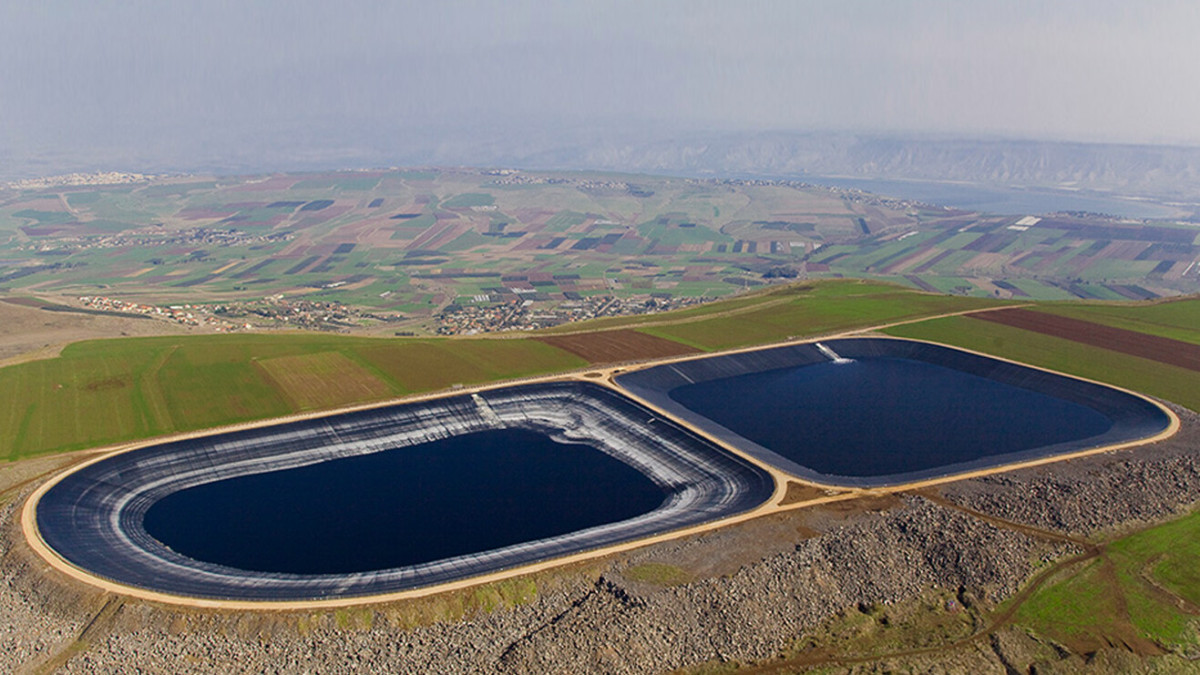The advantages of HDPE rough geomembrane mainly include strong anti-seepage performance, good corrosion resistance, excellent anti-ultraviolet performance, simple construction, environmental protection and non-toxicity.
1.Strong anti-seepage performance: Rough geomembrane is made of high-density polyethylene material, which has good anti-seepage performance and can effectively prevent the penetration of liquids and gases. It is widely used in various anti-seepage projects, such as landfills, sewage treatment plants, reservoirs, etc.
2.Good corrosion resistance: Rough geomembrane can resist the erosion of various chemical substances, such as acid, alkali, salt, etc., so it is widely used in some chemical, environmental protection and other projects.
3.Excellent anti-ultraviolet performance: Rough geomembrane has been treated with special technology and has good anti-ultraviolet performance. It can withstand long-term sunlight exposure and is not easy to age or crack, thus ensuring the long-term stability and safety of the project.
4.Easy construction: The surface design of the rough geomembrane greatly increases the friction and adhesion between it and the soil, making it less likely to slide or shift during construction. It also reduces damage to the geomembrane during construction and improves construction efficiency.
5.Environmentally friendly and non-toxic: The rough geomembrane is made of high-density polyethylene material, which can be fully recycled and reused without causing pollution to the environment. It also conforms to the current green and environmentally friendly engineering concept.
SPECIFICATIONS
HDPE Geomembrane(GH-2TK GH-2T2)Technical Data(GB/T 17643-2011)
BENEFITS & FEATURES


